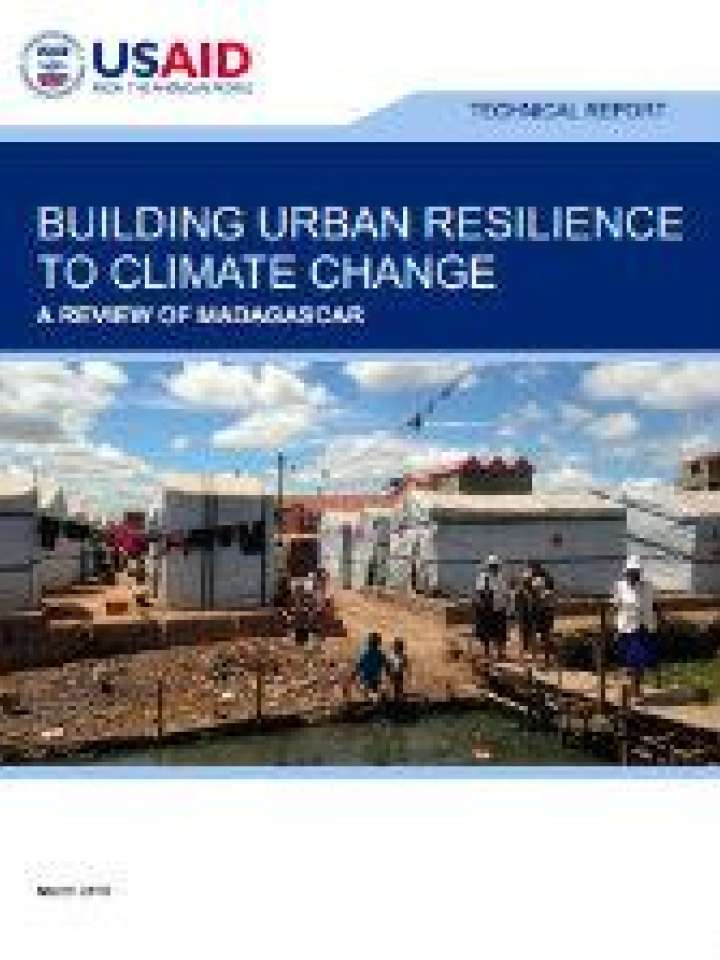Building urban resilience to climate change: a review of Madagascar
This report examines the institutional, legal and regulatory environment, climate change adaptation and urban management capacity, and financial resources and mechanisms available to address adaptation and disaster risk reduction priorities in Madagascar’s growing cities.
The report includes a summary analysis of four communes—Antananarivo, Tsihombe, Tuléar, and Maroantsetra—in order to identify the links between current and future drivers of vulnerability, including social and biophysical drivers such as population density, land use and land cover, and climate drivers such as rising temperatures and altered rainfall patterns. The report also provides recommendations to effectively promote climate-resilient development by 1) improving the availability, quality and use of weather and climate information; 2) mainstreaming adaptation measures into governance, planning and budgeting; 3) piloting and disseminating risk-reducing management practices; and 4) mobilizing finance for adaptation measures from multiple sources.
Madagascar is exposed to a variety of weather and climate phenomena that have wide-ranging impacts on human health and safety, natural resource availability, economic activities and infrastructure. In addition, significant migration to and between the capital city, rapidly expanding secondary cities and emerging urban centers are outpacing municipal capacity to address existing vulnerabilities caused by years of political turmoil and widespread poverty. Despite the commitment to decentralization articulated and reaffirmed in the Government of Madagascar’s laws and policies, technical and financial capacity to support urban management and delivery of basic services remains limited.
Explore further
